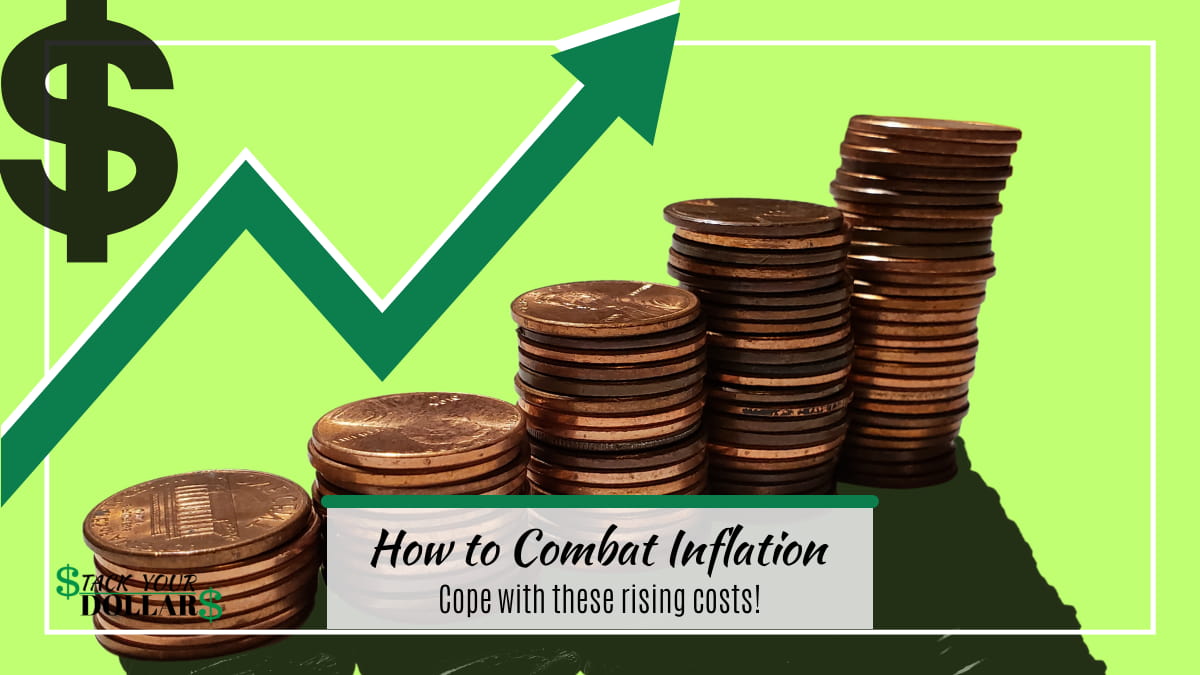I’ve seen it, you’ve seen it… Every day, the price of something is unmistakably higher than it was yesterday. It’s hard to live and combat these rising costs when another changed price tag surprises you daily.
In today’s economy, inflation has become a significant concern, as reflected in the latest Consumer Price Index (CPI) report. According to the data, the all-items index increased by 4.0 percent for the 12 months ending in May.

The things that have significantly impacted my budget are housing, food, and gas. Their prices have changed by 8%, 6.7%, and -19.7% respectively. However, the stated change in gas prices surprises me, as it has increased by 50 cents per gallon since I moved to a new state in January.
This rise in prices has undoubtedly impacted our daily lives, making it increasingly challenging to navigate the ever-changing landscape of rising costs.
Why is everything increasing in price?
The recent pandemic came with a sneaky little sidekick, inflation! Inflation is an increase in the costs of goods and services that are usually caused by an increase in consumer demand or supply costs. Lucky for us, both of those contributed to our current situation.
There were a variety of factors that contributed to the recent price increases such as supply chain disruptions, production costs, capitalism, and global factors.
First of all, with the lockdowns, travel restrictions, and labor shortages, getting goods from point A to point B was a struggle. Fewer products were being produced and companies were without workers to carry the cargo to consumers. With the flow of goods disrupted, scarcity led to prices taking a joyride.
The pandemic also took a toll on production costs. Social distancing measures and enhanced safety protocols have required businesses to adapt their operations. These costs for personal protective equipment and rearranging workspaces were passed down to the consumers.
Furthermore, it caused a ripple effect across industries. As businesses struggle to stay afloat and recover from the blows dealt by lockdowns and reduced demand, they may pass on their increased costs to consumers in turn.
It wasn’t all due to the health crisis, however. Many other factors contributed such as the cargo ship that got stuck in the canal and delayed global shipping, and the current invasion of Ukraine by Russia that is causing fuel and food costs to go up.
How To Combat Inflation
To deal with these escalating expenses and save money during this inflation, I’ve been taking a proactive approach and trying different strategies to help with the financial strain. Here are a few suggestions:
1. Track your spending diligently
Track your expenses by recording every purchase and categorizing them accurately. Utilize digital tools like expense tracking apps or spreadsheets to simplify the process.
By tracking your spending habits it will help you identify areas where you can cut back or make adjustments as you make your budget.
2. Make a budget with a large margin for error
Make a detailed budget that includes all your essential expenses and allocate your money accordingly. Identify your needs versus wants and focus on covering your essential needs first. I like to put aside money for savings first and also have leftover money in my budget.
With the constantly fluctuating prices, having the wiggle room to adjust categories has been absolutely necessary. My gas budget had to be changed a lot over the recent months. Unexpected expenses can arise, so having a buffer in your budget will help you handle unexpected costs without derailing your financial plan.
3. Make a list of regularly bought items with prices
Keep a list of commonly purchased items along with their prices and quantity. This way, you can easily compare prices across different stores or online platforms. It helps you identify the best deals and make informed purchasing decisions.
You can see examples of this in my two grocery shopping lists:
4. Eat more meals without meat
The price of meat has been one of the grocery items that went up a lot. It can be one of the most expensive components of a meal.
It’s not the main reason I switched to eating more vegetarian meals, but it is a great bonus and money-saver.
Meat can be one of the more expensive components of a meal. Consider incorporating more vegetarian or plant-based meals into your diet. Beans, lentils, tofu, and whole grains are often more affordable sources of protein and can be just as nutritious.
5. Shop at different stores to compare prices
Explore different stores and search online to compare prices for the items you regularly purchase. Having my price list helps me to compare which is the best option.
Take advantage of discounts, promotions, and loyalty programs. Consider shopping at discount stores or wholesale clubs, as they often offer lower prices on various products.
6. Keep an eye out for sales and coupons
Keep an eye out for sales and promotions by subscribing to store newsletters, checking newspaper ads, or using online platforms that aggregate deals. Utilize coupons whenever possible to save money on your purchases.
7. Use rebate apps such as Ibotta and Rakuten
Rebate apps like Ibotta and Rakuten offer rebates or cashback on everyday items or online purchases, allowing you to save money over time.
I received $30 with my first purchase.
8. Buy in bulk
Purchasing non-perishable items in bulk can often be more cost-effective. Compare the unit prices of bulk items to regular-sized packages to ensure you’re getting the best deal.
Just be mindful of storage space and make sure you’re buying items that you will use or be able to freeze before they expire.
9. Go for the generic and store-brand products
Consider opting for generic or store-brand products instead of name-brand items. I’ve found that sometimes the cheaper brand is of the same quality or better.
Experiment with different brands to find those that offer good value for your money.
10. Cut back on non-essential expenses
Evaluate your spending habits and identify areas where you can cut back. This could include dining out less frequently, reducing entertainment expenses, or canceling unnecessary subscriptions.
11. Save on utility bills
Take steps to conserve energy in your home. Turn off lights when not in use, unplug electronics when not in use, adjust your thermostat to save on heating and cooling costs, and consider investing in energy-efficient appliances.
Reduce your water usage by minimizing baths, taking shorter showers, and turning off the water when not in use.
I also realized I was being overcharged for my water bill due to a leak. You can check for leaks by recording your water meter number, waiting for about an hour without any water use, then checking to see if the usage went up during that time.
12. Explore alternative transportation options
If gas prices are a significant concern for you, consider using public transportation, carpooling, or biking/walking for shorter distances. This can help reduce your fuel expenses.
13. Look for alternative sources of income
Consider taking on a part-time job or finding ways to generate additional income. This extra money can help offset the rising costs and give you more financial flexibility.
14. Focus on savings and investments
Despite rising costs, it’s crucial to continue saving and investing for the future. Things may get better soon, or it may get worse first, but it’s best to be prepared.
As you save, look for the best way to squirrel away money so it is collecting interest as it sits. Check out higher-yield savings accounts or consider investing in low-risk options like bonds or index funds to help your money grow over time.
Summary
All in all, coping with rising costs requires discipline, planning, and a willingness to make adjustments to your lifestyle and spending habits. Due to my lifestyle, I’ve had to be more adaptable with my regular purchases than others. It’s going to be uncomfortable at first, but I believe in you!
By implementing these strategies and staying mindful of your finances, you can better navigate the challenges posed by increasing expenses.
